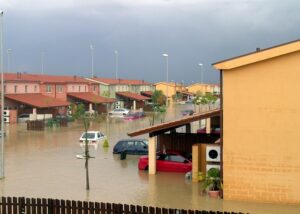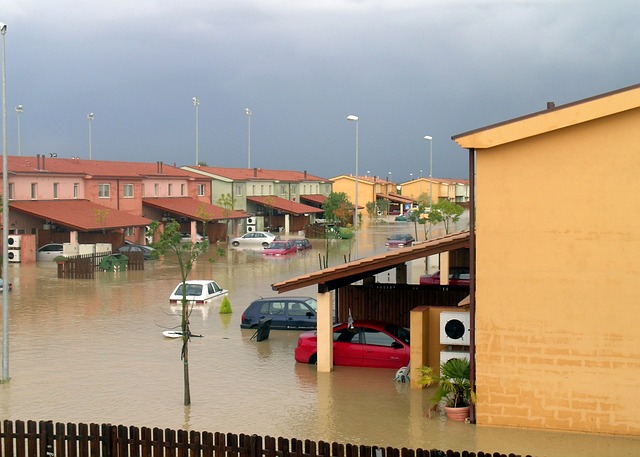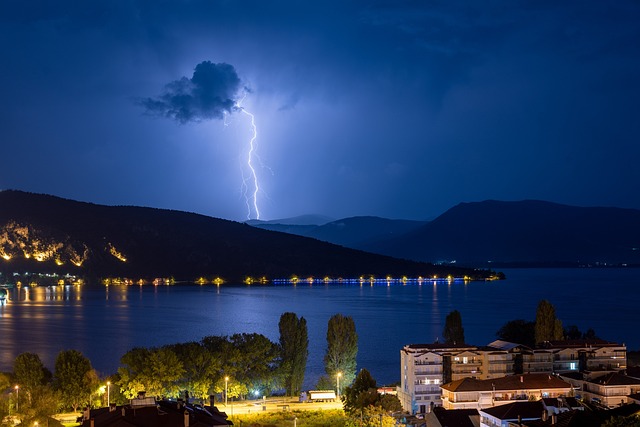Industry participants contemplate the unimaginable.

Some stakeholders in the insurance industry are contemplating the unthinkable in light of the severe losses the sector is suffering: will the sector collapse? This question was posed to Australian regulators and insurance industry officials during a public hearing for a government inquiry.
The investigation focusses on insurance unavailability and affordability as a result of climate-related calamities, such as the floods of 2022, which set a national record for industry losses with AU$6.3 billion.
The first of two consecutive storms struck Florida in the United States during its proceedings. The combined insurance cost of hurricanes Helene and Milton is predicted to reach an astounding US$55 billion.
Nepal experienced landslides and flooding in late September due to intense rains. Over 200 people lost their lives and 4,500 were saved, according to the UN. Kathmandu, the capital, was submerged by water. However, the amount of insurance losses was minimal.
Canada, meantime, has had its worst summer on record, with damages from wildfires and floods totalling CA$7 billion. There’s flooding right now in the UK, especially in Wales. September had exceptionally high levels of precipitation, and 2023 was the wettest year on record for that nation.
Given this, it doesn’t seem absurd to doubt the insurance industry’s viability.
Government backed insurers – the last ones standing?
Climate disasters are becoming more powerful and frequent, according to Australian Greens Senator Mehreen Faruqi, the chair of the panel.
Would state-backed insurers and reinsurers like the Australian Reinsurance Pool Corporation (ARPC) be the only ones left if this collapse happened, she asked Christopher Wallace, CEO of the organisation?
Wallace stated that he had “enormous momentum” around “shared thinking on how to reduce disaster risk in the community” as a result of his talks with the government and the insurance industry.
Wallace stated, “Reducing the risk is the long-term solution, not just addressing the insurance premium.”
Insurers can “just walk away from the market”
The Actuaries Institute’s CEO, Elayne Grace, was the next industry stakeholder to face questions.
“Is there a risk that the insurance industry could actually collapse if the climate crisis continues, especially without a dramatic reduction in emissions?” asked the chair.
Grace stated, “The insurance industry offers one-year policies.” “They are just being exposed in that sense, and they can always leave the market.”
The CEO was worried, though, that this would imply governments would have to handle catastrophes brought on by climate change. She agreed with Wallace that collaboration between the public sector, insurance companies, and the community is critical to lowering risk.
Insurance peak body says industry is sustainable “at this point in time”
“What is the most dire scenario facing the insurance industry if emissions don’t come down and if governments don’t intervene?” asked Faruqi, this time to Kylie Macfarlane, chief operating officer of the Insurance Council of Australia (ICA).
First off, Macfarlane stated that the insurance sector is currently both highly competitive and sustainable. “Its purpose is to provide Australians with a safety net so they can deal with the daily tragedies that occur.”
She did, however, note that since Australia’s Black Summer bushfires in 2019–20, the insurance market has paid out over AU$20 billion in claims related to extreme weather.
Insurtech says parametrics could be the answer
Faruqi repeated her query.
“Unless things change, is the insurance industry’s very survival under serious threat as well, given our greenhouse gas emissions strategy?” the woman questioned.
This time, the respondent was CelsiusPro Australia’s CEO, Jonathan Barratt. According to him, “indemnity style” insurance is having problems.
According to Barratt, “I believe the parametric solutions should be encouraged because they offer an alternative method of risk transfer.”
According to him, more insurers and reinsurers are participating in parametric investing.
System pressures
“Would you agree that there is a real risk that the insurance industry itself goes down?” asked Faruqi once more, this time to academics from Melbourne’s Monash University.
Dr. Antonia Settle stated, “I think that there’s obviously a lot of pressure on the system, on private insurers.” Regarding their demise and the collapse of insurers, I believe there is likely more intricacy involved.
Attend lectures about home finances and dangers.
“I believe the main problem is that their market is getting smaller and they are depending more and more on government support,” she stated.
“The market is failing”
The hearing examined the potential for an entire industry collapse as well as the ramifications of what many perceive to be the current partial collapse scenario.
Because of the risk of fire, insurers have completely withdrawn from the home insurance market in California. Similar coverage issues for fire, flood, and storm hazards exist in Australia in an increasing number of areas where insurance is either nonexistent or too expensive.
The managing director of an insurance broking and chair of the Australian Consumers Insurance Lobby (ACIL), Tyrone Shandiman, declared that “the market is failing” and urged further government intervention.
The deputy chair of the investigation, Senator Tony Sheldon of the Labour Party, questioned him to explain why he believed the insurance industry was failing.
Shandiman recalled speaking with a Townsville senior who was forced to sell her flat due to an insurance bill that consumed $16,000, or 40%, of her pension. “How is it not a failure of the market?”
According to data from ACIL, certain customers are paying up to 20 times as much for insurance as others, he added. According to Shandiman, many residents of high-risk locations are now choosing not to purchase insurance against these risks, which leaves them in need of government assistance.
“Climate ghettos” on the increase
According to Karl Mallon, the industrialised world’s “climate ghettos” are most likely being created by this expanding issue.
Mallon is the CEO of The Climate Risk Group, situated in Sydney.
“If things get really bad, we’ll have to see property buybacks, which means that properties have to be taken off the market,” he stated. “Property rights should be revoked and transferred to safer locations because they are not only unsafe but also unprofitable.”
He made reference to New Zealand, where following several significant flood incidents, property buybacks were implemented.
Do you believe the insurance sector is going to implode? Please share your comments with us below.



